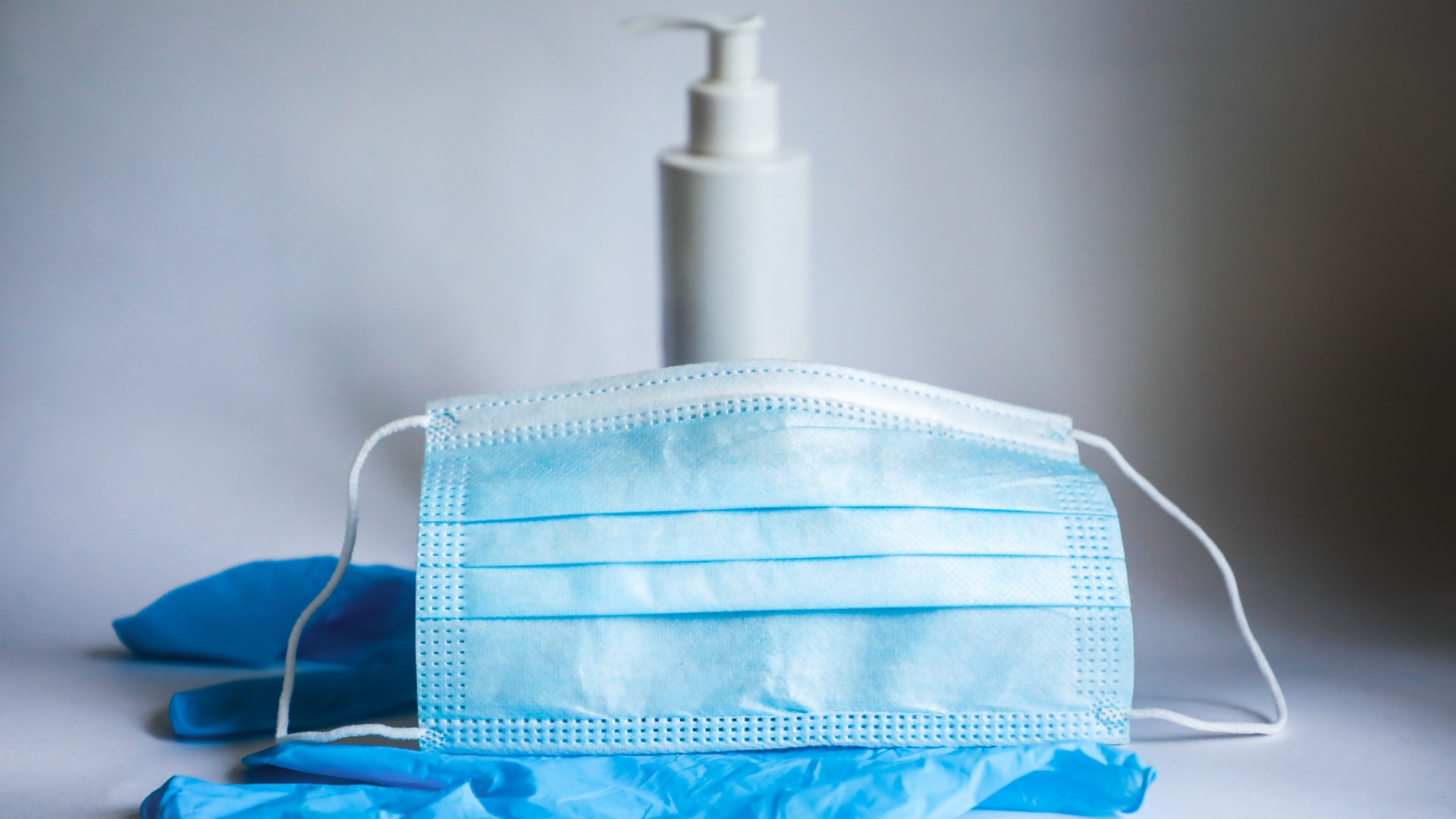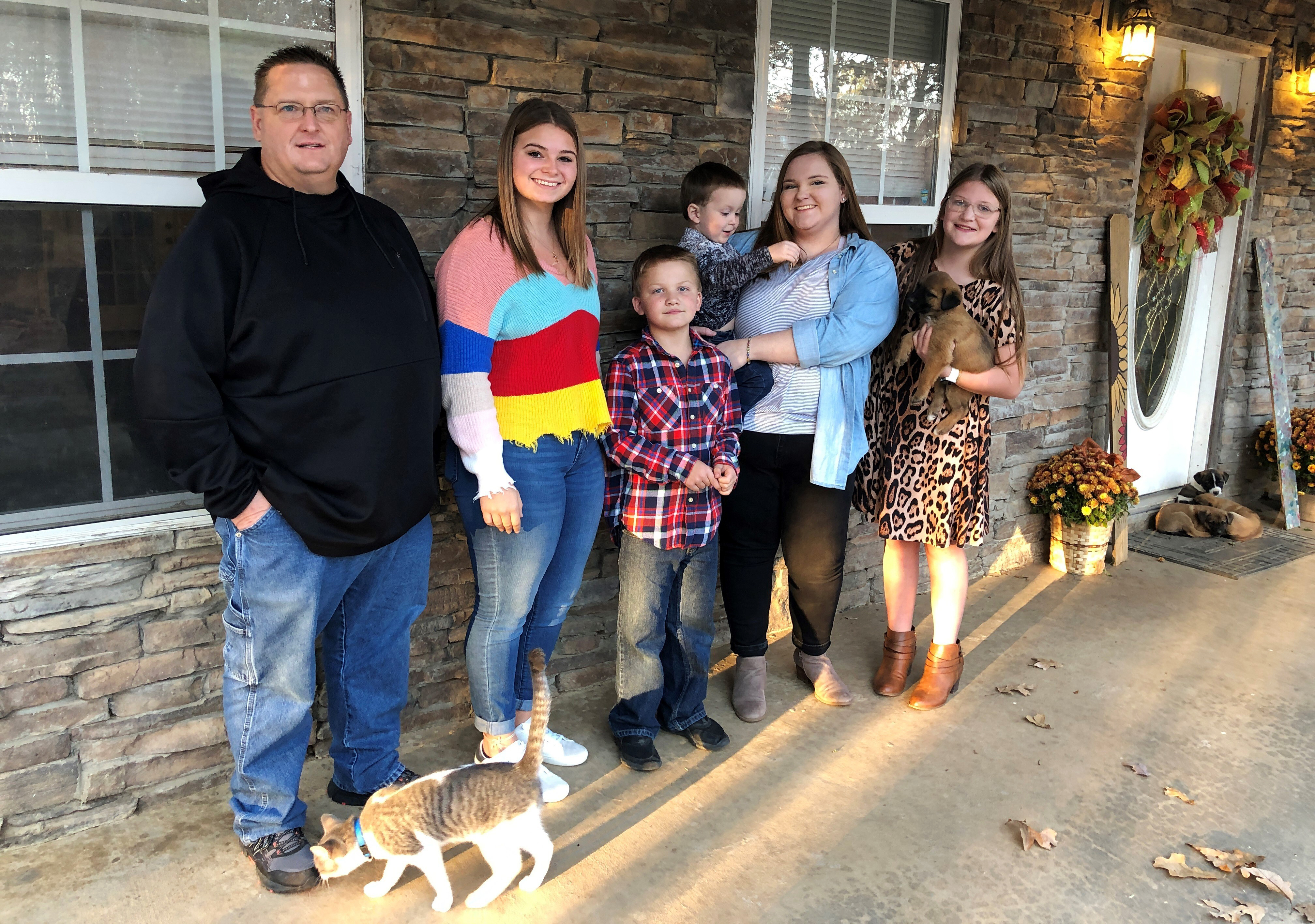Overwhelmed hospitals are converting chapels, cafeterias, waiting rooms, hallways, even a parking garage into patient treatment areas. Staff members are desperately calling around to other medical centers in search of open beds. Fatigue and frustration are setting in among front-line workers.
Conditions inside the nation’s hospitals are deteriorating by the day as the coronavirus rages across the U.S. at an unrelenting pace and the confirmed death toll surpasses 250,000.
“We are depressed, disheartened and tired to the bone,” said Alison Johnson, director of critical care at Johnson City Medical Center in Tennessee, adding that she drives to and from work some days in tears.
The number of people in the hospital with COVID-19 in the U.S. has doubled in the past month and set new records every day this week. As of Tuesday, nearly 77,000 were hospitalized with the virus.
Newly confirmed infections per day in the U.S. have exploded more than 80% over the past two weeks to the highest levels on record, with the daily count running at close to 160,000 on average. Cases are on the rise in all 50 states. Deaths are averaging more than 1,155 per day, the highest in months.
The out-of-control surge is leading governors and mayors across the U.S. to grudgingly issue mask mandates, limit the size of private and public gatherings ahead of Thanksgiving, ban indoor restaurant dining, close gyms or restrict the hours and capacity of bars, stores and other businesses.
New York City's school system — the nation's largest, with more than 1 million students — suspended in-person classes Wednesday amid a mounting infection rate, a painful setback in a corner of the country that suffered mightily in the spring but had seemingly beaten back the virus months ago.
Texas is rushing thousands of additional medical staff to overworked hospitals as the number of hospitalized COVID-19 patients statewide accelerates toward 8,000 for the first time since a deadly summer outbreak.
In the worsening rural Panhandle, roughly half of the admitted patients in Lubbock’s two main hospitals had COVID-19, and a dozen people with the virus were waiting in the emergency room for beds to open up Tuesday night, said Dr. Ron Cook, the Lubbock County health authority.
“We’re in trouble,” Cook said.
In the Texas border city of El Paso, overwhelmed morgues have begun paying jail inmates $2 an hour to help transport the bodies of virus victims. The crush of patients is forcing the city to send its non-COVID-19 cases to hospitals elsewhere in the state.
More than 5,400 extra medical personnel have been deployed around Texas by the state alone, said Lara Anton, a spokeswoman for the Texas Department of State Health Services. And that doesn’t include the help surging into Texas from the military and volunteer organizations.
“There are only so many medical personnel to go around,” said Dr. Mark McClellan, a former head of the Food and Drug Administration.
Ballad Health system, which is located in the Appalachian mountains and includes the Tennessee hospital where Alison Johnson works, has warned that it and its workers are stretched so thin that without a change in course, its hospitals might have to turn patients away. Ballad reported having just 16 available ICU beds Wednesday and about 250 team members in isolation or quarantine. It is trying to recruit hundreds more nurses.
In Idaho, doctors warned that hospitals have almost reached the point where they need to ration care, unable to treat everyone because there aren’t enough beds or staffers to go around.
“Never in my career did I think we would even contemplate the idea of rationing care in the United States of America,” said Dr. Jim Souza, chief medical officer for St. Luke’s Health System.
Coronavirus Pandemic Coverage
In Reno, Nevada, Renown Regional Medical Center began moving some coronavirus patients into its parking garage.
Video of the converted garage before it opened to patients showed rows and rows of beds separated by moveable white screens set up on one level of the stark, cavernous garage, each section designated by letters and each bed space marked by a number on the ground. The garage unit currently houses 27 patients but at peak capacity will have enough beds to accommodate more than 1,400, said Dr. Paul Sierzenski, Renown’s chief medical officer for acute care.
In Kansas, hospitals are converting spaces such as chapels and cafeterias for use by COVID-19 patients, said Cindy Samuelson, spokeswoman for the Kansas Hospital Association.
How Coronavirus Has Grown in Each State
This chart shows the cumulative number of cases per state by number of days since the 500th case.
Source: The COVID Tracking Project
Credit: Amy O’Kruk/NBC
Stormont Vail Health in Topeka, Kansas, devoted an entire hospital floor to COVID-19 patients as their numbers swelled, hitting 90 on Wednesday. The hospital also converted two surgery waiting rooms for use by non-infected patients, spokesman Matt Lara said.
Kansas health chief Dr. Lee Norman said a system that he likened to air traffic control for coronavirus patients is being put in place so nurses from rural hospitals can make a single call to find a larger hospital that can take their sickest patients.
In some cases, nurses and doctors in Kansas have been spending up to eight hours looking for a large hospital with an opening in cities as far away as Denver, Omaha or Kansas City.
“The problem with this is, by the time you transfer these patients out they already are very ill at that point," said Kansas nurse practitioner Perry Desbien.
At the same time, patience is wearing thin over the lack of mask wearing that is contributing to the problem in rural areas.
“It kind of feels like we’re just, you know, yelling into the abyss," said Cheyanne Seematter, a registered nurse at Stormont Vail. "We keep telling everybody to stay home, wear a mask, that it is actually bad here."
Maryland health officials similarly set up a centralized clearinghouse with information on available ICU beds so that hospitals need only make a single phone call. State authorities also issued an emergency order prohibiting most hospital visitors until further notice.
Weber reported from Austin, Texas, Rankin from Richmond, Va. Associated Press writers John Hanna and Heather Hollingsworth in Kansas; Suman Naishadham in Phoenix, Brian Witte in Annapolis, Maryland; and Terry Wallace in Dallas also contributed.



